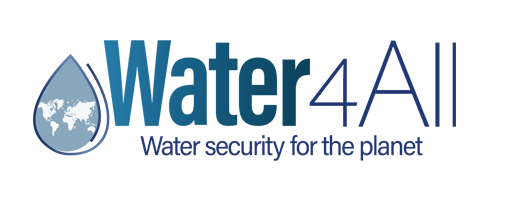Water4All
- PROJECTS

- Jan 1, 2025
- 3 min read
Updated: Jul 31, 2025
Water security for the planet


Duration: 1 January 2025 - 31 May 2031
Funding programme: HORIZON-CL6-2021-CLIMATE-01
Project budget: € 189.766.976,36
SEL NTUA budget: € 610.757,50
Coordinator: Agence Nationale de la Recherche (ANR)
SEL NTUA role: Participant in Pillars A, C, D, E, 0
Project website: www.water4all-partnership.eu
Water4All in a nutshell
Water resources are under increasing pressure across the globe due to the impacts of climate change and unsustainable human practices. Recognizing the urgent need for action, Water4All is founded on the conviction that we can, and must, transform the way we manage and use water. The mission of Water4All is to address pressing water challenges in the context of climate change, support the achievement of the United Nations Sustainable Development Goals (SDGs), and enhance the EU’s competitiveness and sustainable growth.
Water4All – Water Security for the Planet is a European Partnership dedicated to funding scientific research on freshwater. Co-funded by the European Union under the Horizon Europe programme, Water4All promotes a holistic approach to water management, aiming to ensure long-term water security at local, regional, and global scales. Through collaborative research and innovation, Water4All seeks to generate knowledge, solutions, and policy support that contribute to the sustainable use, protection, and governance of freshwater resources. The Water4All ambition is based on acknowledging fundamental realities that shape the global water landscape:
All forms of life on earth need water, and all human activities operate with water.
Water is part of our everyday life.
Water is integrated within urban and countryside landscapes.
Water is one of the most valuable elements we share with plants and animals.
Interdisciplinary and cross-sectoral collaboration
At the heart of the Partnership lies scientific research as a key driver for advancing knowledge and developing solutions to preserve, restore, and sustainably govern water. However, the responsibility for water security extends beyond the research community: it is a shared commitment that involves all sectors of society. Moreover, water transcends borders, making international cooperation indispensable. This is why Water4All unites a cohesive network of 90 partners from 33 countries, spanning both the European Union and beyond. This diverse consortium covers the entire Research, Development and Innovation value chain, fostering interdisciplinary collaboration and cross-sectoral partnerships to address water-related challenges on a global scale.
Water4All Action Pillars
The Water4All Partnership is structured around six Action Pillars covering the whole research and innovation chain. As such, Water4All partners contribute to a wide range of activities (figure below) ranging from the delineation of thematic strategic orientations, to joint calls for research and innovation, knowledge transfer, and communication and awareness raising in Europe and beyond.

Our expertise in action
Within the Water4All partnership, the SEL team is focused on Pillar D (Demonstration activities), which centers on real-world demonstration through Water-Oriented Living Labs (WOLLs). In these labs, innovative water solutions are co-developed and tested in close collaboration with local stakeholders. The aim is to support WOLLs with tools for piloting, validating, and scaling technologies, while fostering collaboration through a network and an "Atlas of WOLLs". Activities include participatory workshops and on-site demonstrations to tackle specific water challenges. Pillar D also works to align financing and investment frameworks to accelerate market uptake and broader implementation of successful innovations. SEL is also working to include an additional WOLL under its coordination—the Antissa WWTP Living Lab, located in Lesvos, Greece.
In addition, the SEL team contributes to Pillar A (Joint Vision and SRIA), Pillar C (Science - Policy - End-users Interface), and Pillar E (Internationalisation) by organizing seminars and participating in policy working groups.
NTUA research team
Simos Malamis, Eleni Nyktari, Ioanna Villa, Maria Mimikou





